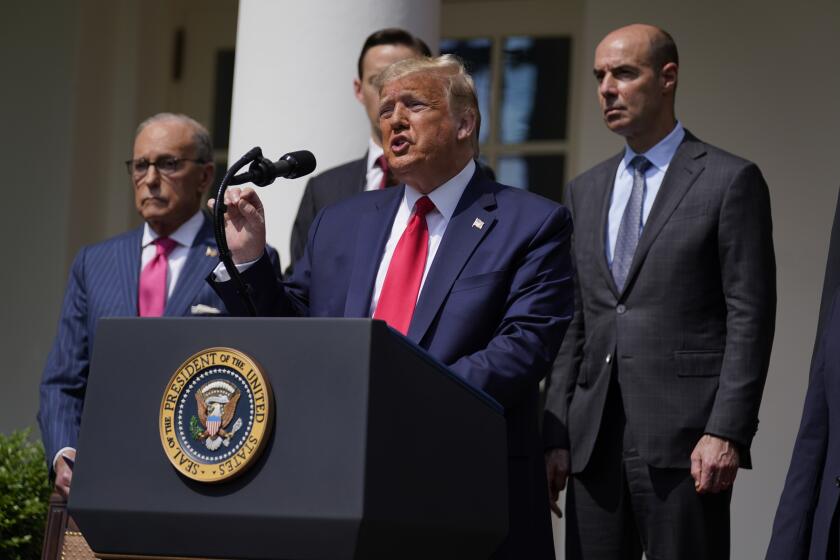As President-elect Donald Trump embarks on his second term following a tenure marked by significant labor developments under Joe Biden, uncertainties loom for labor unions and employers alike. Biden campaigned as the “most pro-union president in American history,” facilitating a range of policies designed to empower workers and bolster unions. Now, with the prospect of Trump’s return to office, the labor movement finds itself apprehensive about potential rollbacks of existing protections. Parsing through the implications for labor under Trump, analysts highlight substantial shifts that may unfold, particularly concerning the National Labor Relations Board (NLRB) and other labor-related sectors.
The NLRB, a critical agency overseeing unionization and employee rights, saw a robust approach under Biden’s appointed general counsel, Jennifer Abruzzo. She championed worker interests through various initiatives, including banning noncompete agreements and prohibiting captive audience meetings, helping enhance union access and influence during workplace disputes. However, with Trump’s return, forecasts indicate a stark departure from this trajectory. Experts predict Abruzzo’s potential ousting and the installation of a more employer-friendly figure. Such a transition could signal the reversal of pivotal decisions made by the NLRB under Biden, effectively rolling back advantages gained by unions, such as expedited union election processes and progressive union-related rulings. This cyclical shift in administration priorities, termed “ping-ponging,” could fundamentally alter the landscape of labor rights in the U.S.
Trump’s hardline stance on immigration, particularly his promises of mass deportations, raises significant concerns for industries reliant on undocumented labor, such as agriculture and construction. A report suggests that approximately 8.3 million undocumented immigrants contribute to over 5% of the U.S. workforce. Analysts predict that Trump’s aggressive enforcement initiatives could hinder immigration compliance within businesses, potentially leading to increased workplace raids and labor audits. This aggressive enforcement could empower unscrupulous employers to exploit undocumented workers without fear of repercussions, which labor advocates anticipate could lead to widespread wage theft and violations of labor standards. Conversely, the fear persists that protections for these vulnerable workers may be diluted under an administration focused on punitive measures rather than safeguarding labor rights.
In addition, Trump’s proposal for imposing extensive tariffs on various trading partners, including Canada, Mexico, and China, presents risks for American workers. Economists suggest that implementing such tariffs would increase the prices of consumer goods, thereby diminishing the purchasing power of American families, especially those in lower-income brackets. The anticipated retaliatory measures by affected countries could exacerbate the situation, leading to an escalation reminiscent of the trade wars experienced in Trump’s first term, which negatively impacted U.S. industries reliant on imports. Higher costs associated with imported materials could lead to financial strain on industries, potentially resulting in job cuts and increased economic instability for American workers who rely on those jobs for their livelihoods.
The appointment of Lori Chavez-DeRemer as Trump’s Labor Secretary introduces a layer of complexity to the labor landscape. Known for her alignment with pro-union policies, Chavez-DeRemer’s selection has sparked anxiety among certain Republican factions. Her co-sponsoring of the PRO Act, a piece of legislation intended to expand labor rights and enhance penalties for labor violations, creates a dichotomy for employers who fear excessive regulation. Despite her pro-worker stance, some labor advocates maintain skepticism, suggesting that systemic pressures from the broader Trump administration could supersede her individual inclinations, leading to potential rollbacks in protections and enforcement on critical Labor Department issues, including workplace safety and employee classification.
As the tension surrounding labor relations builds, the potential changes under a second Trump administration encapsulate a broader ideological clash over the future of labor rights in America. While the gains made under Biden are now vulnerable to erasure, the appointment of pro-labor leaders might signal some continuity for worker rights advocacy. However, the overarching priorities of the Trump administration—centered on deregulation and employer interests—portend a challenging environment for labor unions and advocates. The upcoming years will likely test whether the administration can balance its policy agenda with the complex needs of American workers in a landscape marked by rising economic challenges and increasing polarization over labor rights. The outcome will critically shape not only the immediate realm of labor relations but also the longer-term dynamics of the American workforce.

